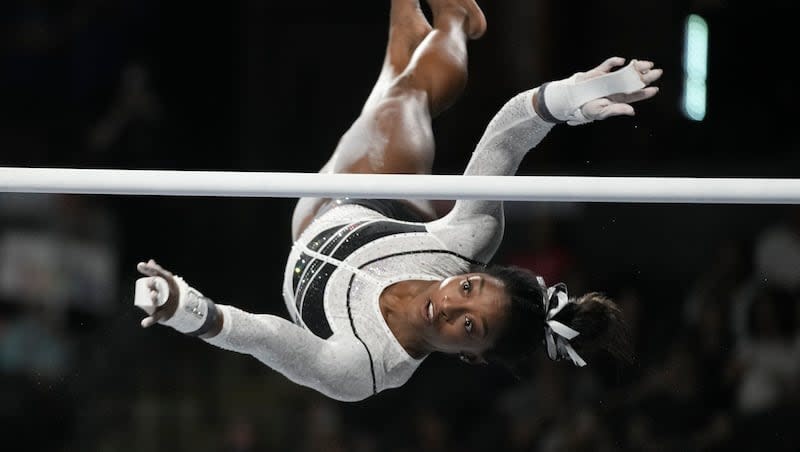Olympic AI? The IOC says artificial intelligence will protect athletes from online abuse at Paris Games

The International Olympic Committee is promising to protect athletes and officials from “online abuse” during the 2024 Summer Games in Paris.
How? By setting up a system using artificial intelligence to monitor X, Facebook, Instagram, TikTok and other social media platforms for attacks against the 15,000 athletes and more than 2,000 officials participating in the Olympics and the Paralympics for athletes with disabilities.
The Switzerland-based IOC says an “AI-powered system will monitor thousands of accounts on all major social media platforms and in 35+ languages in real time,” to flag any threats “so that abusive messages can be dealt with effectively by the relevant social media platforms – in many cases before the athlete has even had the chance to see the abuse.”
Olympic alpine skier Lindsey Vonn, a member of the Salt Lake City-Utah Committee for the Games that’s bidding to host the 2034 Winter Games, praised the effort developed with the IOC Athletes’ Commission as part of a larger initiative to utilize artificial intelligence that was launched in April.
“This is an amazing tool that will greatly benefit the athletes in many ways,” Vonn said. “It will enhance their Olympic experience, allowing them to focus on competing and trying to win medals.”
Patrolling cyberspace is described as key to ensuring athlete safety, said Kirsty Burrows, head of the IOC’s Safe Sport Unit.
“Sport and social media are inextricably linked. At Paris 2024, we are expecting around half a billion social media posts,” Burrows said, adding, “Creating a safe space inside a bubble at the Games is one thing, but the whole world is watching, and therefore there can be very high exposure to abuse.”
Social media offers athletes “fantastic opportunities” for engagement, she said, “but unfortunately online violence is inescapable, particularly when athletes rely on social media for their profile. This is a critical challenge for us because safe sporting environments also have to mean safe digital environments.”
Athletes are being assured by the IOC that the detection system is ready for the Paris Games, which begin July 26, after it was tested during the Olympic Esports Week, the virtual and simulated sports competitions held in Singapore nearly a year ago.
A total of 199 offensive comments, images, emojis and other abusive phrases from 48 accounts were found among the more than 17,000 social media posts analyzed, aimed at 122 athletes and two officials, the IOC said, noting 49 of the posts were “subsequently verified as abusive by a team of experts and flagged for removal.”
Although athletes can opt-out of the monitoring, the IOC’s message to this summer’s Olympians is: “Cyber abuse is a widespread problem in modern society and, as an athlete, you can be a target. This can seriously affect your mental and emotional well-being,l which can in turn impact your physical performance.”
IOC President Thomas Bach said the AI system was put in place as a response to feedback from Olympians.
“The athletes are at the heart of everything we do at the IOC,” Bach said. “I know that the athletes have a unique and valuable perspective on how the Games should be organized and on the issues that affect them while competing.”

